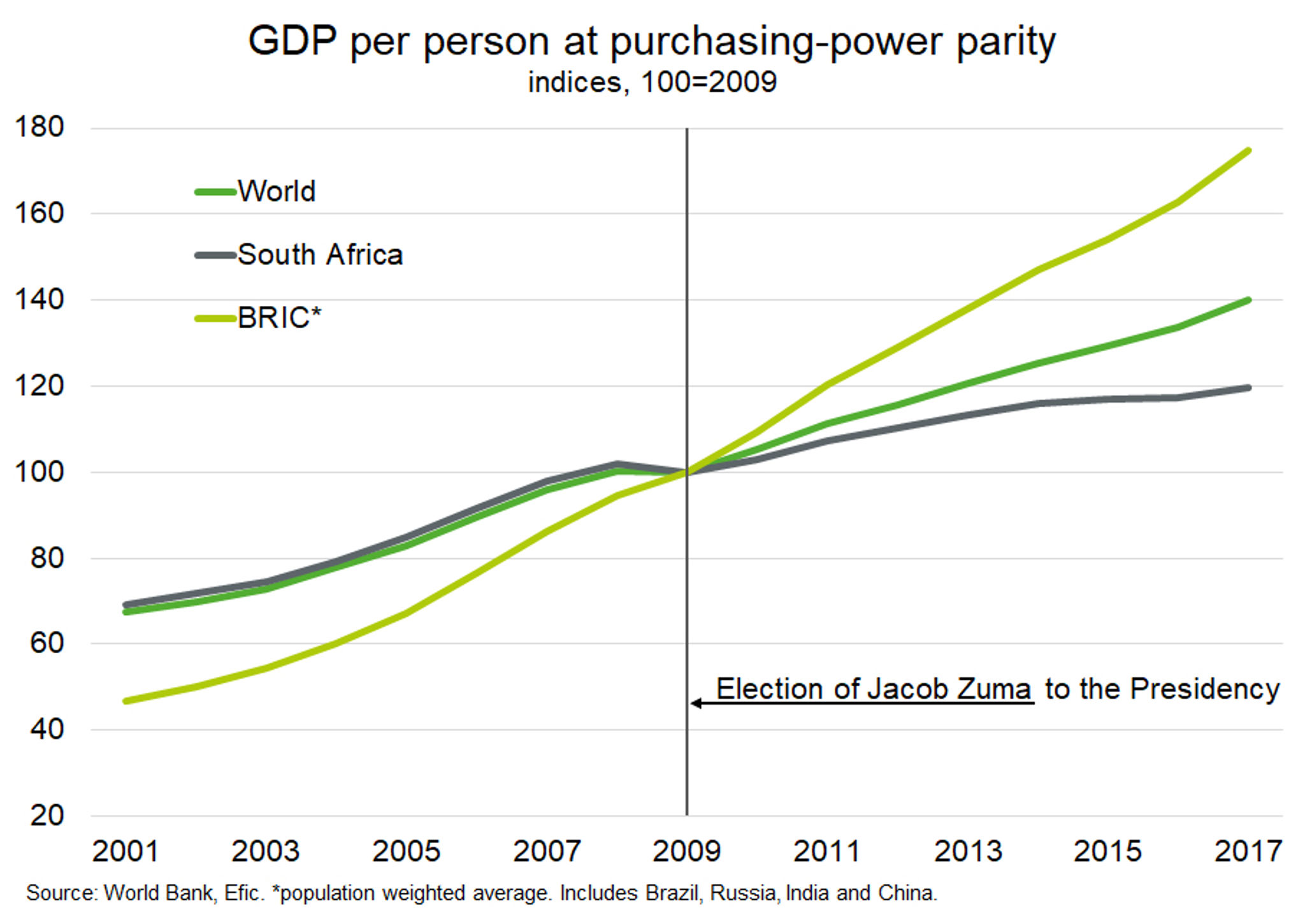Cyril Ramaphosa remains President of South Africa after securing 58% of the popular vote in the 8 May election. He was former President Jacob Zuma’s deputy, but came to power after Zuma resigned following pressure from the ruling African National Congress (ANC) party and allegations of corruption. South Africa’s economy suffered heavily during the term of former President Zuma:
- Growth in incomes per capita significantly lagged both other major emerging economies and the rest of the globe (Chart).
- Public debt, relative to the size of the economy, more than doubled reaching 56% of GDP.
- Unemployment reached 27%, with an eye-watering 40% of people aged between 15-34 unable to find work or not involved in education.
President Ramaphosa has promised to end corruption and get the economy back on track, with a priority for economic diplomacy and to implement economic reforms. A clear majority should help Ramaphosa deliver on his promises. Analysts will be watching the announcement of the new cabinet, a smaller and more reformist cabinet, as an indication of President Ramaphosa’s leadership and ability to implement the necessary anti-corruption reforms.

